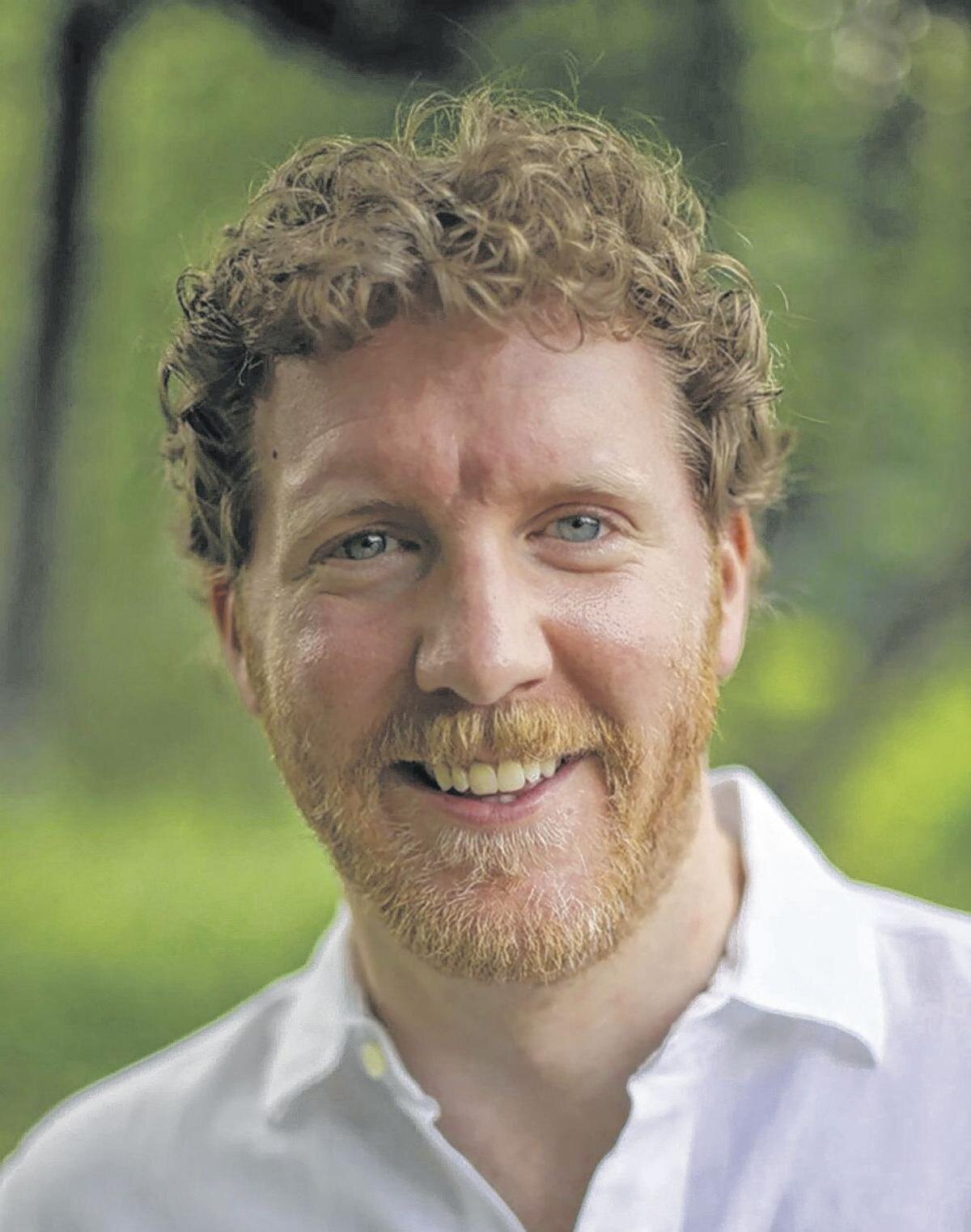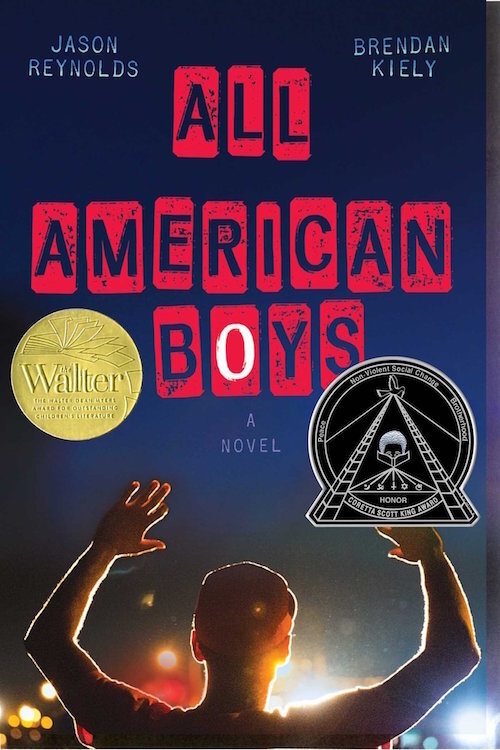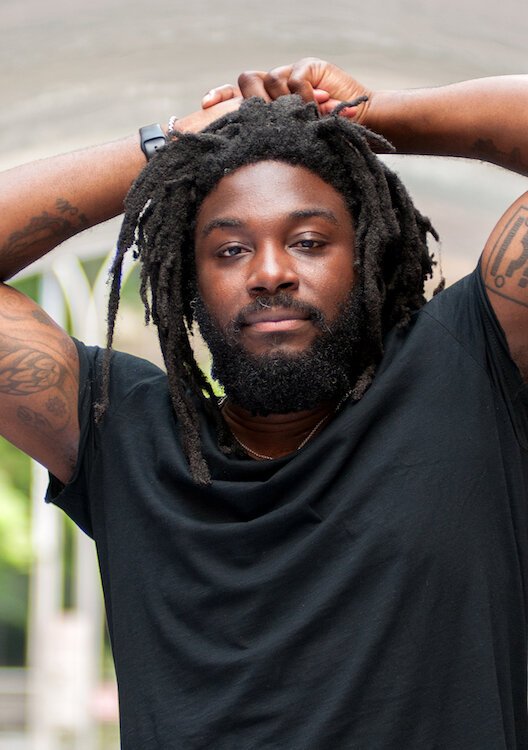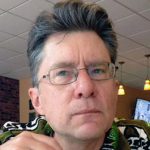‘Radical honesty’ leads to friendship that makes writing ‘All American Boys’ together possible
Two authors from two different Americas meet on a book tour, become friends, and write an award-winning book together. They will discuss 'Antiracism and You' on March 16.
Two perspectives, two teens.
One, doing nothing wrong, is viciously beaten by a cop, and the clip of the beating is shared on social media and the news. The other tries to pretend he didn’t see it, tries to ignore it — the beaten teen might be a friend, but the cop is like family.
Rashad is Black, Quinn is White.
The young adult novel “All American Boys” is fiction, but very realistic when it was published in 2015, and much more so today.
Co-authors Jason Reynolds and Brendan Kiely worked to include two perspectives of the police beating of a Black teen because they’d found themselves feeling two similar, but different forms of anger at the different ways U.S. justice seems to treat Black and White citizens.
“All American Boys” is the Portage Communiteen Read, a collaboration by Portage Public Schools, the Portage District Library, and This is a bookstore/Bookbug. Reynolds and Kiely will be holding an online conversation on the novel and “Antiracism and You,” March 16.
We spoke with Reynolds last year, when he and his novel “Long Way Down” was the 2020 Communiteen focus. His appearance was canceled due to the pandemic.
This year we spoke with Kiely. Speaking from his home in New York City, Kiely says that “All American Boys” came out of an uncomfortable moment between the two writers, back when they were two strangers on a promotional tour of a group of young adult authors.
It was 2013, and George Zimmerman had been acquitted in the shooting death of 17-year-old Trayvon Martin.
When the news broke, “I’m angry and I’m frustrated and I’m sort of wrought with emotion — and I’m traveling and living with a stranger,” Reynolds told NPR in 2015.
Asked about that time, Kiely tells us the moment between the authors was like Dr. Martin Luther King’s speech on “two Americas living side-by-side.”
“Jason’s mother, a black woman in South Carolina, called him to say, ‘I’m nervous, I’m scared as you’re traveling around the country, because what if there’s a George Zimmerman out there for you?'” Kiely says.
“My mother, who I know loves me, and I love her, did not call me. She has absolutely no reason to have that fear. And I think that throws it into real stark contrast, those two Americas.”
While on the authors’ tour, it seemed there was “one high profile case of police brutality after another,” he says. “We’re sitting there in airport terminals looking up at the TV and watching the news, and Jason is leaning over to me, saying, ‘You know what? Something like this happened to me, something like this happened to my cousin, something like this happened to other people I know.'”
Then Reynolds asked Kiely, “How about you, Brendan? What was your experience like with the law, growing up?”
“And I had to look him in the eye and tell him how many times I’d gotten away with crimes, essentially. Pulled over for speeding and not getting a ticket, and when the keg party in the little stand of trees between a couple of buildings gets busted up and none of us gets arrested, let alone get beaten up.”
“The real difference in our realities was so stark, and to have to say those truths to each other and then begin to form trust and a friendship, is what enabled us to really try to write ‘All American Boys.’ We had to build a friendship first, and every friendship needs honesty at its base.”
We spoke further with Kiely about perspectives on police, his hometown of Boston, racial healing, and radical honesty. The interview was edited for length and clarity.
Second Wave: We hate to bring this up, but this subject of children’s books is in the news, and feel free to say you don’t want to talk about it — Dr. Seuss.
Brendan Kiely: “I just want to be a tad thoughtful as I respond to this… I grew up (with Dr. Seuss books), have a 20-month-old child now, and my instinct is to go for the same books… But I learned that books that I may have loved are offensive and caused harm to other people in our community, so I have absolutely no problem setting them aside for any one of the thousands and thousands and thousands of children’s books out there….”
There is greatness in the Dr. Seuss collection, but there are also ethnic stereotypes. “I think we can both revere people for some of their greatness, and we can also critique them when they make mistakes. And I’d say that’s true of myself, too.”
When a high school teacher in New York City, “I wanted to do the best that I could do for my students — it meant that sometimes I’d have to listen to criticism from my students, from other teachers, from the families of students I taught. And if they ask me to rethink the way I did something because it was offensive, then if I care about people, wouldn’t I want to review that and accept the mistake was made, and go from there? I think that’s what we’re talking about with Dr. Seuss.”
Kiely also loved books of Tintin comics, which he eventually realized were full of ethnic stereotypes. “It kind of feels a little queasy, now. Yet at the time I loved it.”
When he discovered “Lord of the Rings” as a teen, he began devouring fantasy and science fiction novels.
“I loved being transported to those other worlds. That’s what kept me reading for most of my younger years. My mother was feeding me all the fantasy, and my father was feeding me all the sci-fi.”
SW: You grew up just outside of Boston, a city with a reputation for racial conflict. What were you seeing?
Kiely: “I just happen to be working on a new book that’s part memoir, part research about White privilege and Whiteness… stories about growing up in a nearly-exclusive White community. So my introduction to race and racism was often an introduction that spoke about it as if it was happening far away.”
While growing up in a White neighborhood, “there was never a conversation about ‘race’ because the assumption always was that if you’re talking about race you’re talking about People of Color, Black people, Indigenous people, that again nearly none of them were in the community in which I grew up, it was so predominately White…. I was kind of trying to find my own footing in looking for language, finding language, needing to find language about my own racial identity.”
Kiely remembers the riot that broke out at a Boston Green Day concert in the mid-’90s, and seeing that the Boston Globe went with a front-page photo “of an Irish man with a tattoo on his bicep throwing a punch on a Black man. The racism is so deep and steeped in Boston. The segregation is so deep and steep in Boston.
“While I was growing up, a lot of what I thought was racism was a story of bad guys hurting innocent people, and it only was until later in life, some teachers in high school, some other adults and friends — and certainly when I was in college — that people began to open that story up (for me). It’s not about bad actors and innocent victims, but it’s a complicated story of all of us and how race plays a role in our country from its founding moments to this day.”
SW: The White teen in “All American Boys,” Quinn, wants to ignore the fact his friend Rashad was beaten by a policeman he knew and trusted. What’s the role for White people in these situations, in the BLM movement, in the response to videos of police brutality against people of color?
Kiely: “I’m going to try to set this in Quinn’s narrative, but I mean this in a broader sense — the first thing that Quinn has to grapple with is that he has to believe what he saw.
“I think as White people in the United States, we have to believe what we see. We’ve seen it so many times, we’ve seen the kind of violence that White people in positions of power get away with, whether that’s Emmett Till in 1955 or Rodney King in 1991, and all the cases in between there, up to George Floyd in 2020. Not to mention all the women who we don’t speak of enough. ‘#sayhername.’ Rekia Boyd, Sandra Bland, and the list goes on.
“We have to believe what we see, that’s the first step. And not denying it — denying it protects us and makes us feel better that we’re not somehow guilty, or denying it helps us feel like being White doesn’t in some way make it incumbent upon us to have some accountability for this violence, when in fact I think it does.
“I think the second step is to look more closely at the truth of our history, and see just how deeply racism affects everything in our country’s history, because by looking at our history more honestly we can look at our present more honestly.
“Those first two steps are about doing the work within ourselves — (the third step) is to actively listen to the stories and truths coming from communities of color. In the news, and also in other media, meaning, as a White person I think it’s incumbent on me to read more books written by authors of color, see more movies directed by and starring people of color. To follow more journalists on social media who are journalists of color. Because, by reframing my narrative, not in a way that reflects my preconceived biases and instincts for denial, but instead consuming narrative that challenges some of that, I think ultimately I, as a White person, grow and become a fuller human being.”
SW: How is it, co-writing a novel with not only another author but another author who has his own perspective as a Black man on race and police?
Kiely: Co-writing with anyone is hard, “but we made it work. He’s one of my closest friends, now. It was a long road of becoming friends first that made that possible.
“As we were watching once case after another, one that really hit home for me was the case of Eric Garner (who died in a police chokehold after being accused of selling loose cigarettes in 2014) in New York City. I was angry. I was angry that I kept seeing this happen over and over again. And I was angry at the disparity between Black communities and White communities like mine, and our relationship with law enforcement. And Jason was angry, too, but our angers were different. Different angers.
“That’s what made our book special. We shared a kind of common motivation, we shared a common goal, to lay bare the truth of police brutality and racial disparity with regards to law enforcement. But our different racial experiences fueled two different narratives. I can’t claim to know what it’s like to be Jason growing up, and likewise very honestly neither can he claim to know my experience.
“And I think by being honest about that with each other we were able to create a kind of novel in dialog, in a way that won’t always happen when two people sit down to write because we began with acknowledging that our racial experiences create two different narratives.”
SW: So, as a White person, you were taught that the police are there to serve and protect citizens, but you became angry when seeing that’s not the case when it comes to police dealings with African American citizens? And Jason’s anger is from knowing this directly?
Kiely: “Absolutely. He knows it from first-hand experience…. Also, while Jason and I are writing about Black and White experiences in just the way you’re describing it, part of that anger is how I was taught a trust, and it was a trust I could believe in.
“I still trust law enforcement to this day. How can I not? Most often, my interactions are beneficial. And we need law enforcement in our community to some extent.”
“But I would be remiss to not also mention that the group of people most likely to die in their interactions with law enforcement are Indigenous folks in the U.S.
Kiely says that in encounters with police, “the rate at which (Indigenous people) are killed in their interactions with police officers is more than three times as likely as White people, whereas with Black folks it’s more than two times as likely…. The sheer number difference is just outrageous.
“I might just add that, I think neither of us could have expected the depth of friendship that emerged from what began as a few moments of pretty radical honesty. And I think I sometimes hope that in a broader sense our country could have more racial healing if as a country we took the time to have more of those moments of radical honesty.”
SW: What have been the reactions from young readers to “All American Boys?”
Kiely: “It’s been read all across the country and in many different kinds of communities…. The startling thing is, that despite the differences in community, some of the responses are the same.
“Young people are, first of all, thrilled to read books in which the characters sound like them. ‘Hey, they sound like the way we talk!’ And they’re also thrilled to see on the page the emotional reality that they themselves are experiencing in real life.
“Their own world is reflected back to them, whether it’s the kids who can say, ‘I know how Rashad is feeling right now, because I’ve experienced that, too.’ Or, the kids who’re saying, ‘I’ve never been around anything like that in my life, and I trust the law because that’s what I’ve been taught, and they’ve been there to help me my whole life… And yet I keep seeing this stuff on social media or the news or wherever, that I don’t understand. I’m confused, and want to know more.’
“That kind of confusion that young people are experiencing, regardless of their community, is reflected in the book, and it’s why we wanted to write the book. We wanted to give young people a chance to air out their feelings, a chance to air out their confusion, a chance to look for moments of empowerment that’s something they don’t often see in books.
“I’m just so proud and grateful that young people are responding to the book in the way we hoped they would because as Jason will often say, we wrote the book for them.”
Join the conversation
“Antiracism and You: Online Conversation with Jason Reynolds and Brendan Kiely,” Tuesday, March 16, 6 p.m. Registration link.



















